Polyester is popular due to its resilience and resistance to creasing. However, these properties can sometimes make it stiff and scratchy. Frequent washing can also cause it to stiffen, leading us to ask, how to soften polyester.
In this article, we’ll look at how to soften polyester using a variety of products, many of which you should have lying around at home.
What Makes Polyester Stiff?
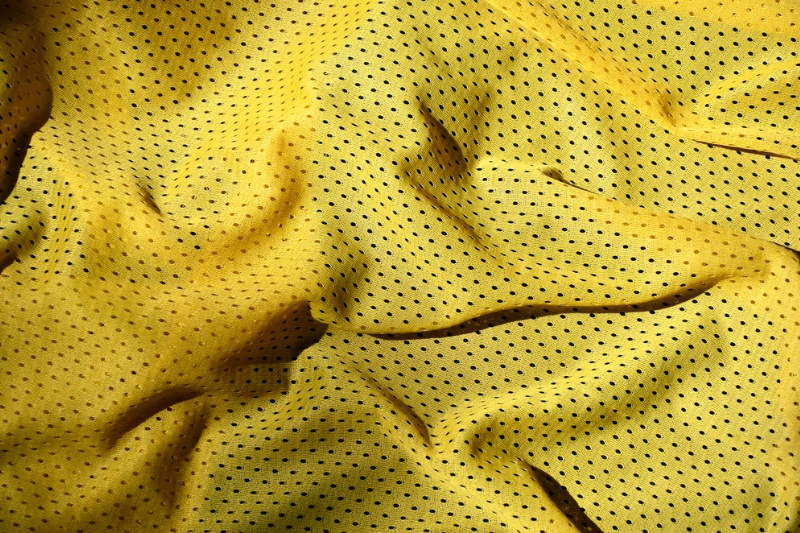
Polyester is naturally stiff because the fibres don’t have the same kind of stretch as something like cotton. In fact, polyester has no natural stretch.
Another important factor is the chemical treatment used during production, which can leave it feeling much stiffer (much like starching on natural fibres). While this stiffness is helpful for crease resistance, it doesn’t make items very comfortable.
Luckily, it doesn’t take much to soften polyester, and doing so doesn’t compromise its inherent properties.
If you want to avoid having to soften your polyester, opt for poly-cotton blends instead. Blending these materials combines their beneficial properties, specifically crease resistance and softness.
How to Soften Polyester
Unsurprisingly, the options for how to soften polyester involve washing it with different products. There are several options depending on how stiff your fabric is and how much effort you want to put in.
Method 1: Fabric softener
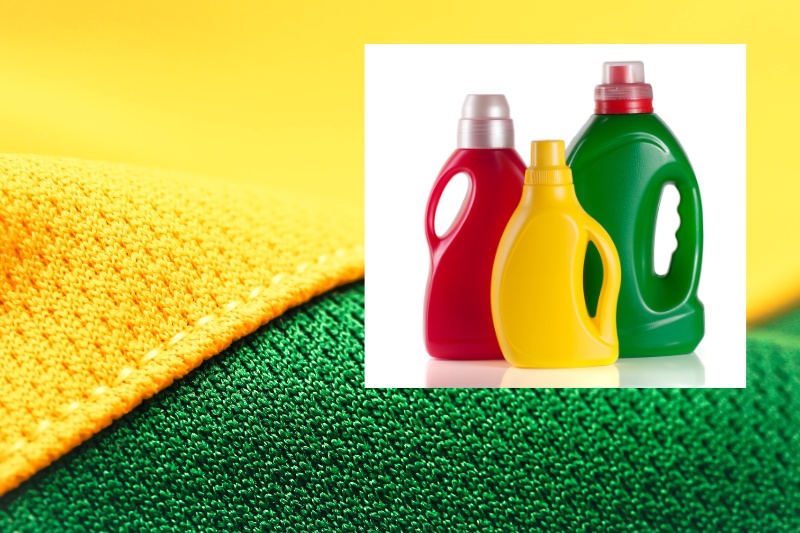
An obvious place to start is to use fabric softener. It’s generally fine to use fabric softener on polyester fabrics, although you should always check the care label first.
However, bear in mind that polyester has almost no absorbency, so fabric softener might not produce the best results.
Follow the instructions on the fabric softener bottle as part of the wash cycle. You won’t necessarily need to use fabric softener every time you wash your stiff polyester. Try it every other wash and see how soft the fabric is, and then adjust your usage accordingly.
Method 2: Rinse with white vinegar
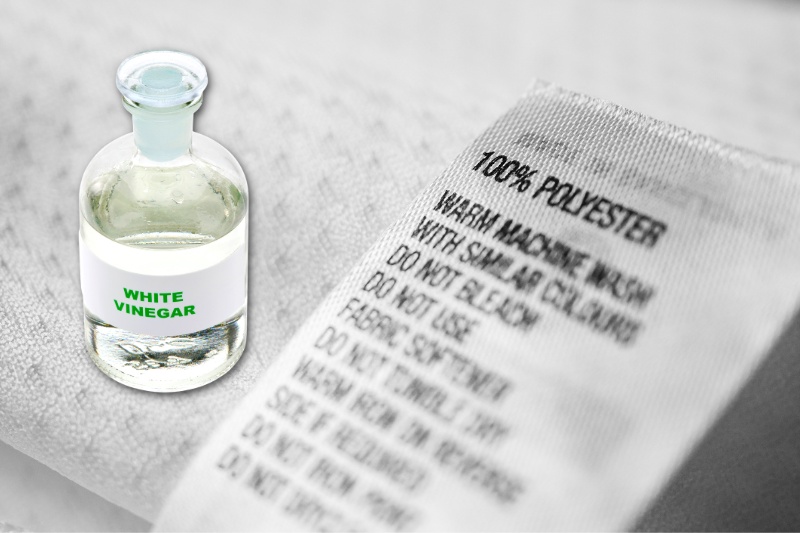
Alternatively, you could use white vinegar to soften your polyester. This is a preferable option for those who don’t like using fabric softener.
Not only does it help to reduce static, but it also loosens the bonds between fibres, which makes the fabric feel softer.
Put 150-200 ml of white vinegar in your washing machine’s fabric softener drawer and wash as normal.
Your clothes shouldn’t come out smelling of vinegar, as the machine should rinse it away. If they do smell a bit, just air them out for a few hours.
Method 3: Bicarbonate of soda
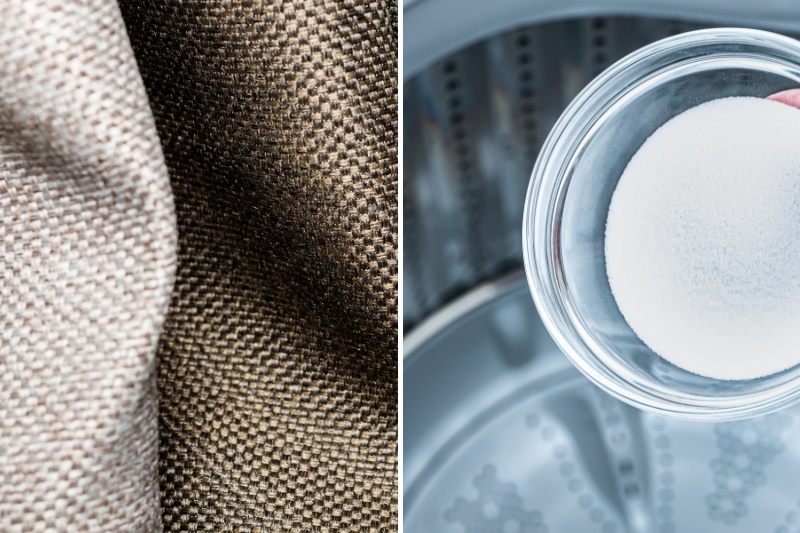
Bicarbonate of soda (aka baking soda) is another option for softening polyester, particularly if you live in a hard water area.
Like vinegar, it can help to reduce static and detergent build-up, which can affect the softness of your clothes. It also controls the pH of the water, which is why it’s useful in hard water areas.
Throw 100-150g of bicarbonate of soda into your washing machine (either directly into the drum or into the detergent drawer).
Don’t try to use bicarbonate of soda and vinegar in the same washing cycle. As you might remember from school, the products mix and neutralise one another. The reaction doesn’t produce anything useful for our needs here.
Method 4: Use less laundry detergent
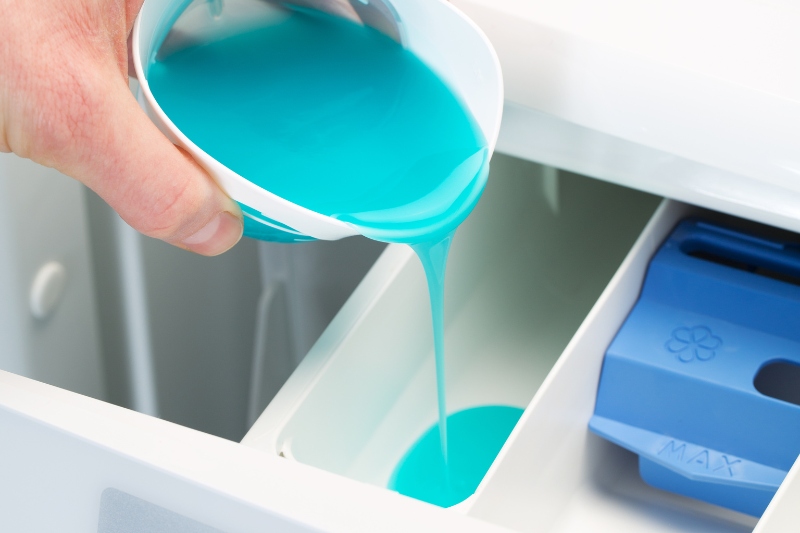
If your polyester clothes feel stiff after frequent washing, it could be that you’re using too much detergent. While it might sound counterintuitive, too much detergent doesn’t actually make your clothes cleaner.
Too much detergent can mean it isn’t rinsed off properly during the wash cycle, leading to build-up on the fabric fibres. This residue contributes to stiffness regardless of the type of fabric.
For a regular sized load (6-8kg), around a tablespoon of detergent is enough. Larger loads should only need 2 tablespoons. For high-efficiency washing machines, this even drops down to 2 teaspoons!
Using too much laundry detergent is probably the least likely reason for stiff polyester clothing, but it’s worth considering.
Cutting down on how much you use will make the detergent last longer and can also help cut down on smelly washing machines. As such, there’s no harm in giving it a go!
Final Thoughts
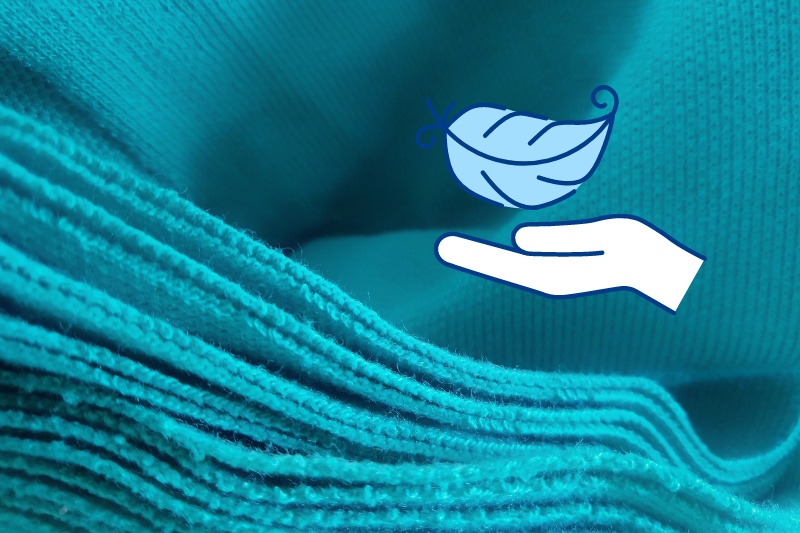
As you can see, there are a few options for how to soften polyester. Despite being a naturally stiff fabric, washing it with the right product will help it feel a lot more comfortable.
Make sure you always check the care label of your polyester item before washing. Although rare, some recommend not using fabric softener. If this is the case, or you don’t like using it at all, any of the other options should help it feel much softer.

Jacob is a writer based in Wales, where he lives with his partner and two dogs. All his work is fuelled by extensive research and buckets of coffee.




